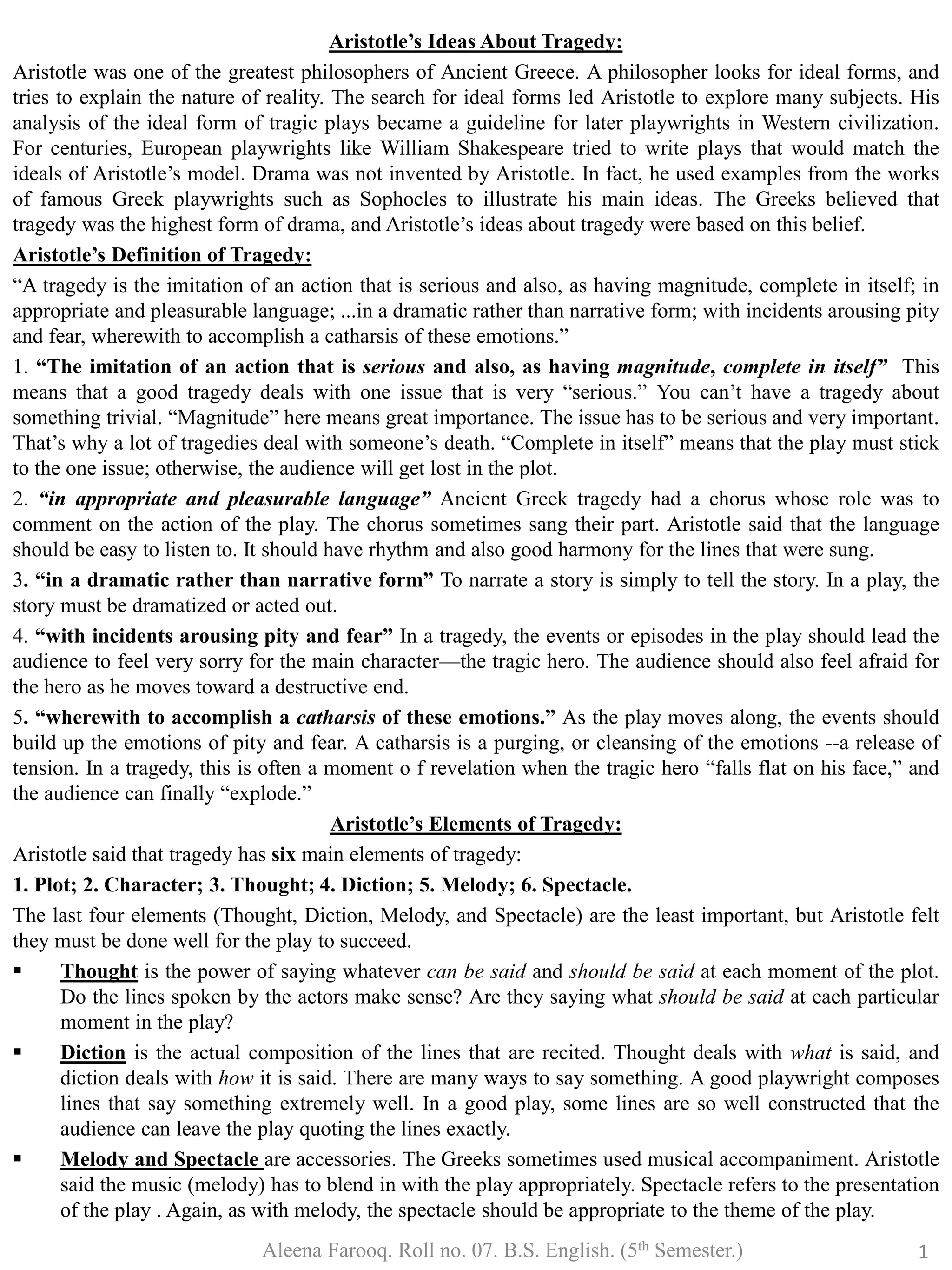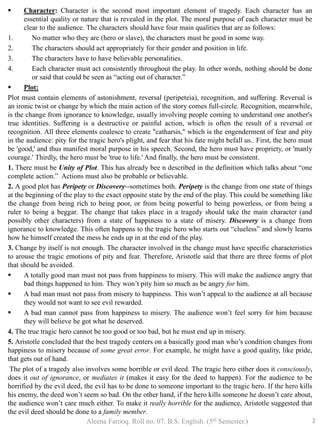Aristotle analyzed Greek tragedies and developed a theory about the ideal form of tragedy. He believed tragedy should involve a serious action that evokes pity and fear in the audience. The main character, or tragic hero, should be generally good but make a significant error that leads to their downfall. This allows the audience to feel pity for the character. Well-written tragedies also have unity of plot, a reversal of fortune for the main character, and use language and drama to purge the emotions of pity and fear in the audience. Aristotle's analysis set standards for plot, character, and language that influenced playwrights for centuries.

